Heading to Europe this summer? Think twice before lighting a cigarette on the beach or strolling shirtless down a boardwalk. With visitor numbers predicted to surge to record levels in 2025, many destinations are cracking down. Europe travel rules—and the list of things that can get you in trouble—are growing, with new bans, fines and restrictions that could cost you hundreds (if not thousands) of euros.
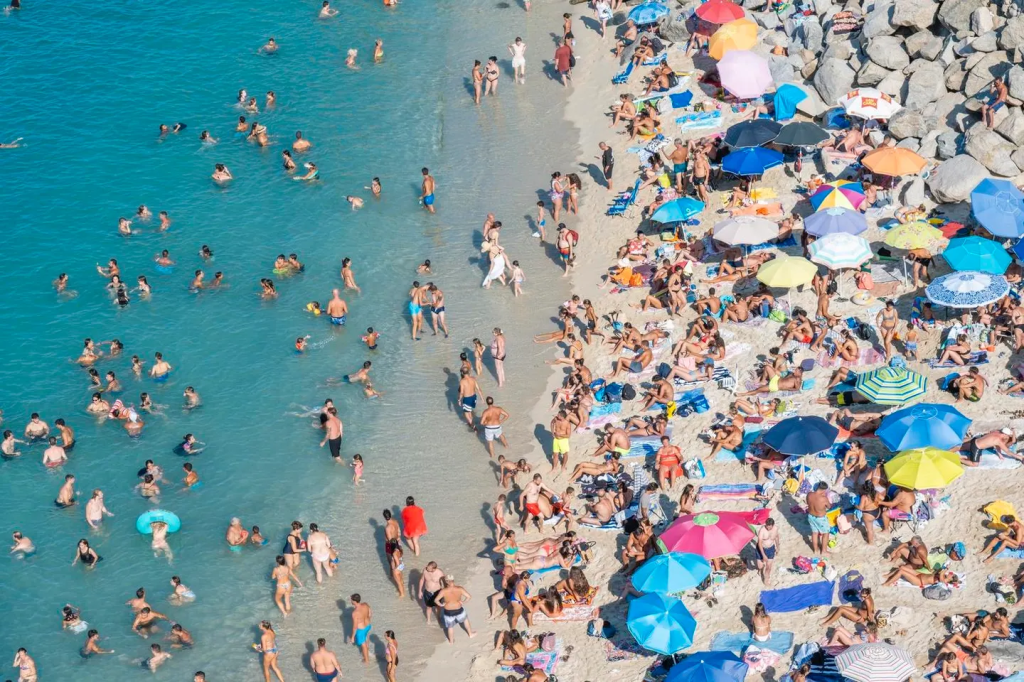
Some of the new rules are dramatic—like banning music on beaches, outlawing drinking in certain public areas and limiting selfies in overtouristed villages. Some countries can even fine you for wearing flip-flops while driving (even though it’s not technically illegal).
It’s all part of a growing movement to combat overtourism at a moment when tensions are boiling over. In April and May, anti-tourism protests broke out across Spain, from Madrid to Mallorca to the Canary Islands. And on June 15, activist groups will be staging massive protests across several countries, with marches, picketing at airports, tour bus blockades and more.
So before you head off on that dream European getaway, be sure to research the rules for wherever you’re going. Here’s a small sampling of what you need to know, from new rules and fines to surprising ones that have quietly been on the books for years.
Spain
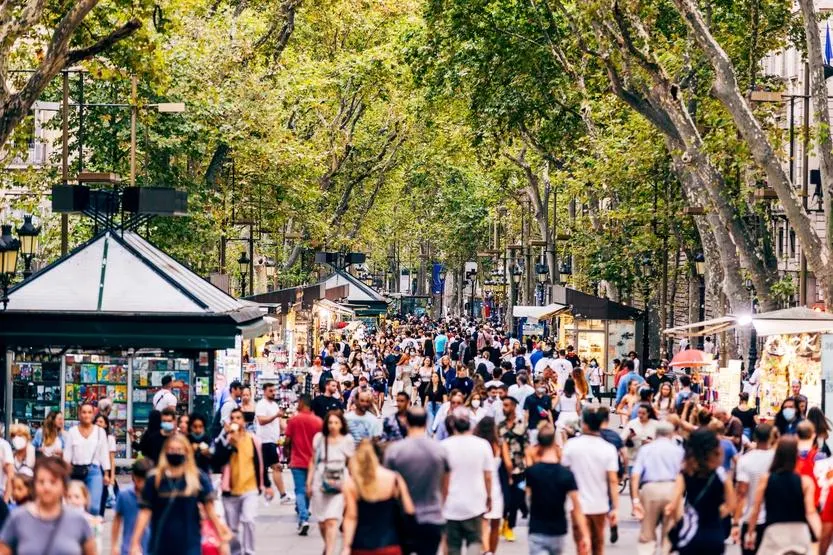
Spain is leading the charge when it comes to regulating tourist behavior—and this summer, the rules are stricter than ever, especially when it comes to beaches. Dozens of coastal towns—including spots in Barcelona, the Balearic Islands and on the Costa del Sol—have banned smoking on beaches, with fines up to €2,000 (about $2,260, based on the conversion on the date of publication). In some regions, you can be fined up to €250 (about $283) for reserving a sunbed and then disappearing for hours.
Public urination—yes, even peeing in the sea—is a punishable offense in places like Marbella and Vigo, with fines up to €750 (about $848). And be careful what you wear: Cities such as Malaga and Barcelona have imposed fines for walking around in swimwear when you’re not at the beach.
The rules don’t stop once you leave the sand. Spanish authorities are targeting tourists behind the wheel. Driving in flip-flops isn’t explicitly illegal, but police can fine you up to €200 (about $226) if they decide your footwear is unsafe.
And be careful about getting your party on: In hotspots like Mallorca, Ibiza and the Canary Islands, authorities are clamping down on rowdy tourism with a host of strict new measures. Pub crawls and party boats are banned in notorious nightlife hubs, while public drunkenness can result in fines up to €3,000 (about $3,390).
Italy
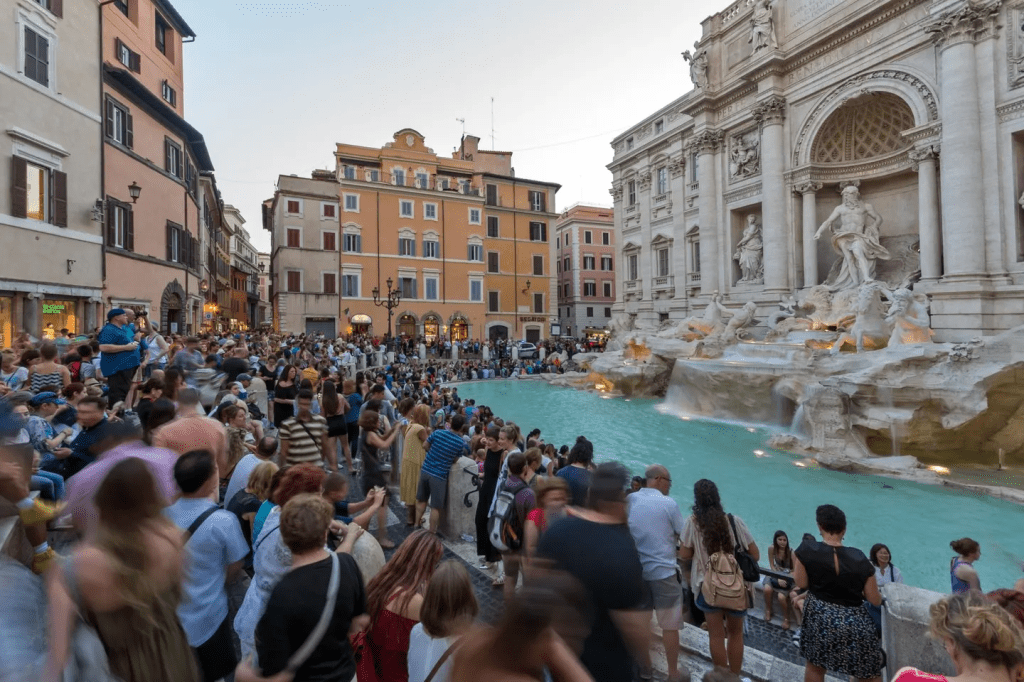
Italy’s most iconic destinations are stepping up enforcement as overtourism continues to put a strain on popular sites. Nowhere is this more evident than Venice, which began charging day trippers a fee to enter the city, ranging from €5 (about $5.65) if booked in advance to €10 (about $11.30) for last-minute arrivals. (Visitors with hotel reservations are exempt.) Tourists caught without proof of paying the fee can be fined up to €300 (about $339). The city has also banned loudspeakers, large tour groups and swimming in its iconic canals, which could get you a fine of €1,000 (about $1,130).
Other Italian towns are also cracking down on bad tourism behavior. In certain no-waiting zones in Portofino, you can get fined up to €275 (about $300) for taking a selfie and holding up pedestrian flow. In Lake Garda, police have fined tourists up to €700 (about $763) for jumping off cliffs and swimming in dangerous areas—even a rowdy game of football could cost you €600 (about $654).
Dress codes are another hot topic: In the coastal town of Sorrento, walking around in swimwear beyond the beach or pool areas carries a fine of up to €500 (about $545).
Some hotspots are trying to avoid crowds. Pompeii is limiting visitors to 20,000 a day in 2025. In Rome, there’s a limit of 3,000 visitors at any one time at the Colosseum, and scam artists selling tickets are being fined (be careful who you buy from).
France

In France, authorities are increasingly asking visitors to show a little more respect. Take Paris. While having a picnic of wine and cheese in a park or along the Seine might seem très romantique, drinking alcohol is banned in many public areas, so research the rules. If you’re caught, fines can reach €135 (about $153).
In France, the fashion police is a real thing. Several towns along the Côte d’Azur have banned overly revealing swimwear away from the beach, including Cannes, where walking around shirtless or in a bikini can result in a fine of up to €38 (about $43).
Greece
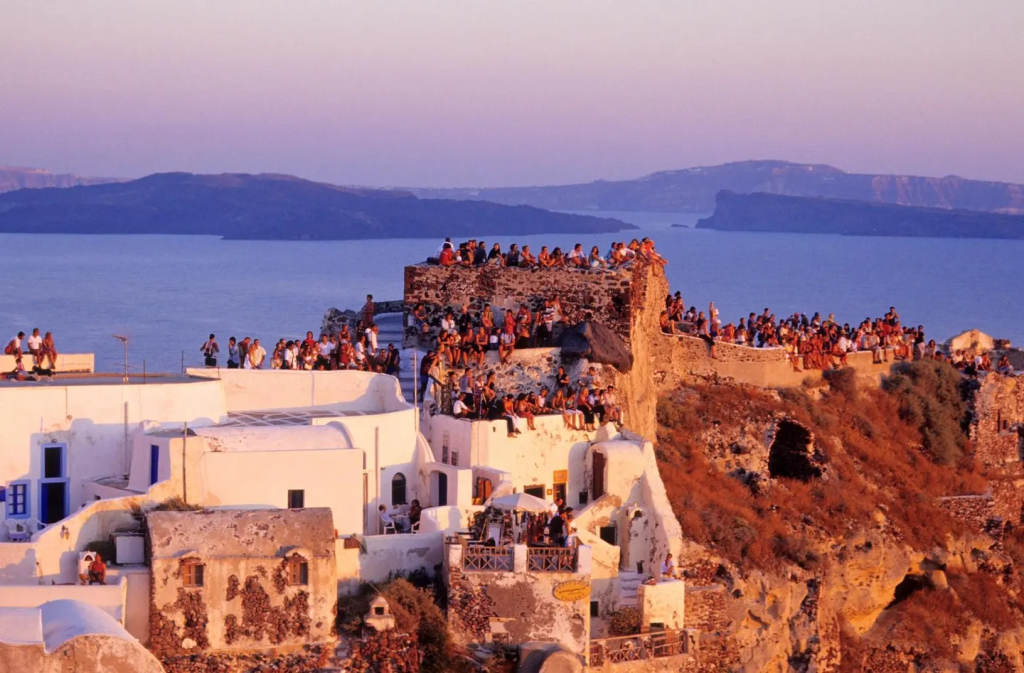
Greece is getting serious about protecting its cultural landmarks and natural beauty. Starting this summer, cruise passengers disembarking at Santorini or Mykonos between June and September will face a €20 (about $23) per-person fee. The islands are also limiting cruise arrivals—Santorini now caps daily cruise visitors at 8,000 to ease overtourism.
Greece has also implemented beach preservation rules, requiring 70% of public beaches to remain free of sunbeds. And forget about bringing home a souvenir from nature: In many areas of the country, collecting seashells or pebbles from beaches is illegal, with fines up to €1,000 (about $1,130).
There are land-based rules, too. Wearing high heels at archaeological sites is prohibited, with fines of up to €900 (about $1,017) to prevent damage to fragile ancient surfaces. The Acropolis is also trying to avoid crowds with a cap of 20,000 visitors per day, in addition to timed-entry tickets.
Croatia
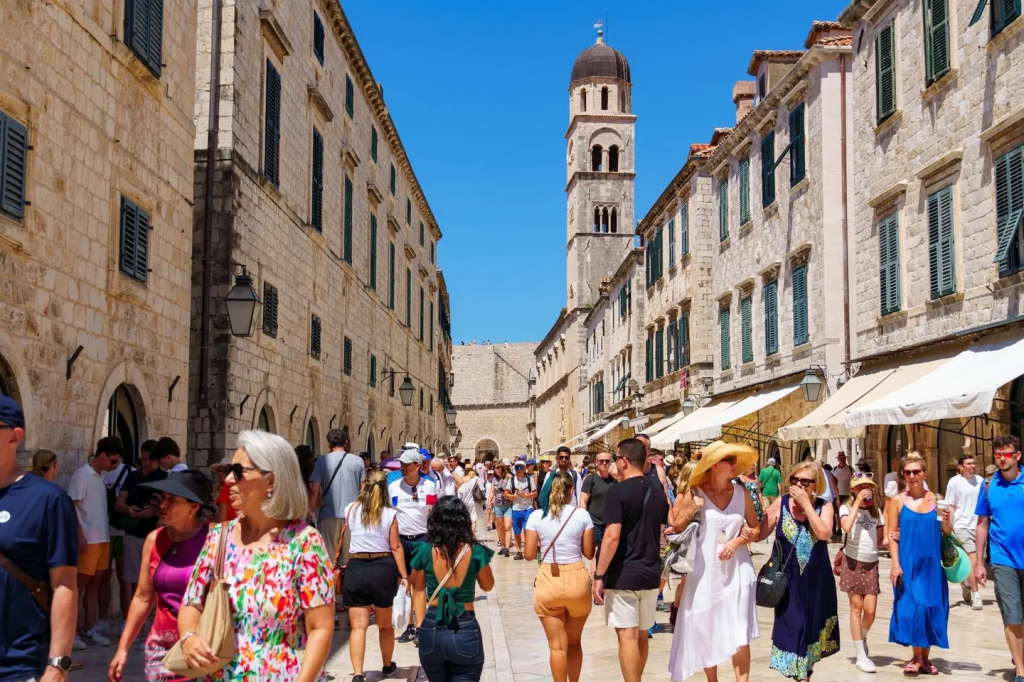
Croatia is cracking down on unruly behavior and crowd control, especially in its most popular summer hot spots. In Split, walking around the historic city center in swimwear—or worse, underwear—is strictly forbidden, with fines up to €150 (about $170). The rules are even tougher in nearby Hvar: There are new quiet hours, and visitors can be fined €600 (about $678) on the spot for drinking in public
Meanwhile, the mayor of Dubrovnik—one of the most overtouristed locations in Europe–is pushing back in a big way. Only two cruise ships are allowed to dock in the city per day, souvenir stands have been shut down, cafe chairs have been reduced, taxi service has been curtailed and more. The goal? A calmer, more livable city—for locals and tourists alike.
Portugal
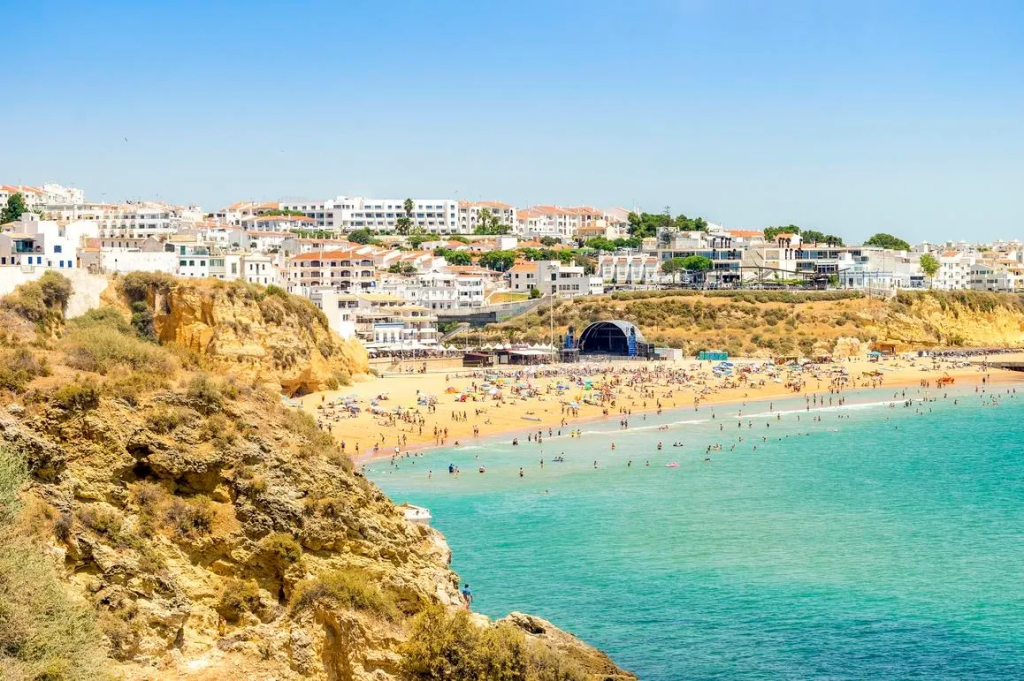
Portugal is cracking down on unruly behavior, especially in coastal hotspots like Albufeira, where tourists can be fined a staggering €1,500 (about $1,695) for walking around town in swimwear—and there are even higher penalties for public nudity. The rules also target street drinking, public urination and spitting.
Noise is also under fire in Portugal: High-volume speakers are now banned on many beaches, with fines up to an eye-watering €36,000 (about $40,680). Some areas are shortening bar hours to curb late-night chaos. And in Sintra, protests by locals have officials considering limits on hotel development to preserve the town’s historic charm.
Netherlands
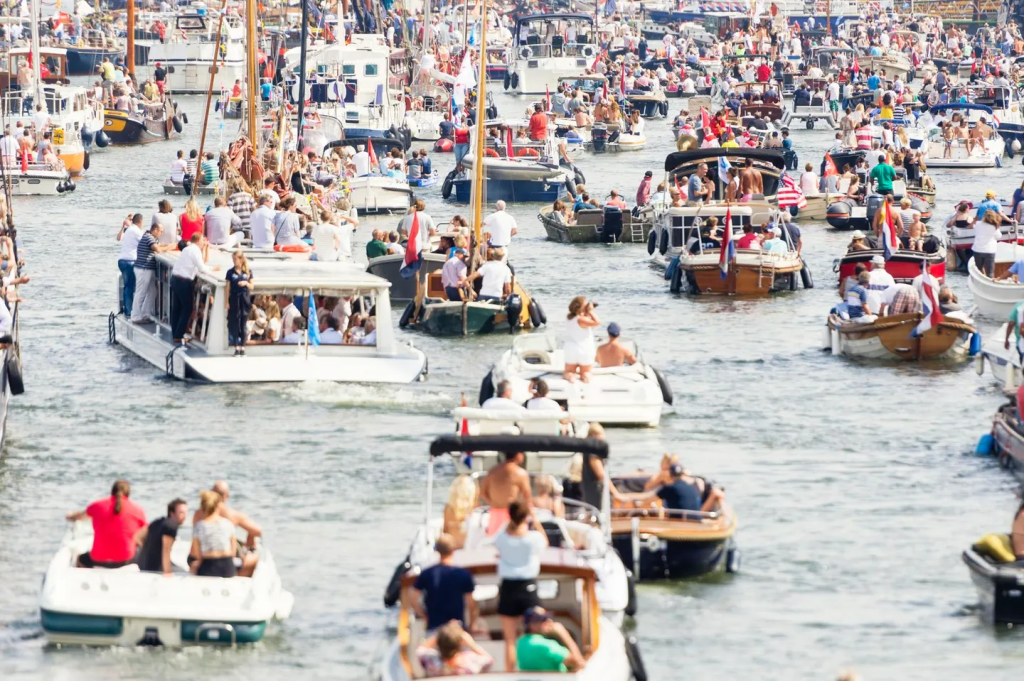
Amsterdam is cracking down on tourism in a big way. The city’s “stay away” campaign targets partygoers with ads warning them not to come. Smoking cannabis on the street in the Red Light District is now banned, bars close earlier and group tours face stricter limits. Boat parties have new rules around noise and alcohol. New hotel development is being banned. Locals are even suing TikTok famous shops that are attracting overtourism. The message is clear: Respect the city—or stay home.
Austria
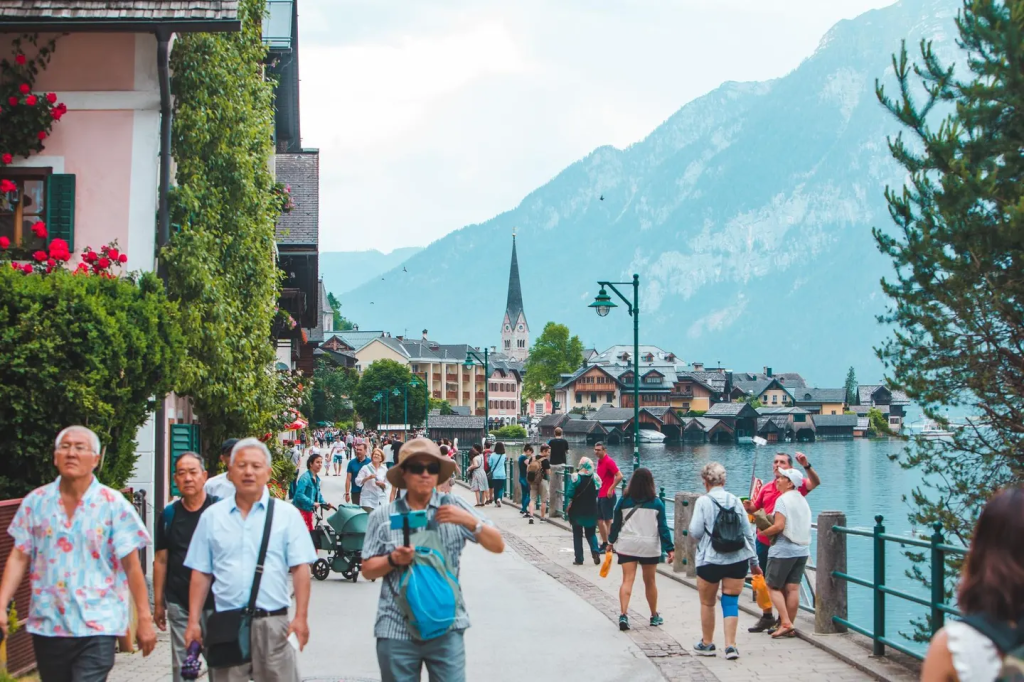
Austria is also cracking down on overtourism. In the mountain town of Hallstatt—said to have inspired Disney’s Frozen—a temporary “anti-selfie” fence was installed to block crowds from overwhelming the town’s famous lake views. And here’s a lesser-known rule: If you’re taking a roadtrip in Austria, leave that dashcam at home. They are largely banned in Austria due to privacy laws, and using one can lead to fines as high as €25,000 (about $28,250).
Germany
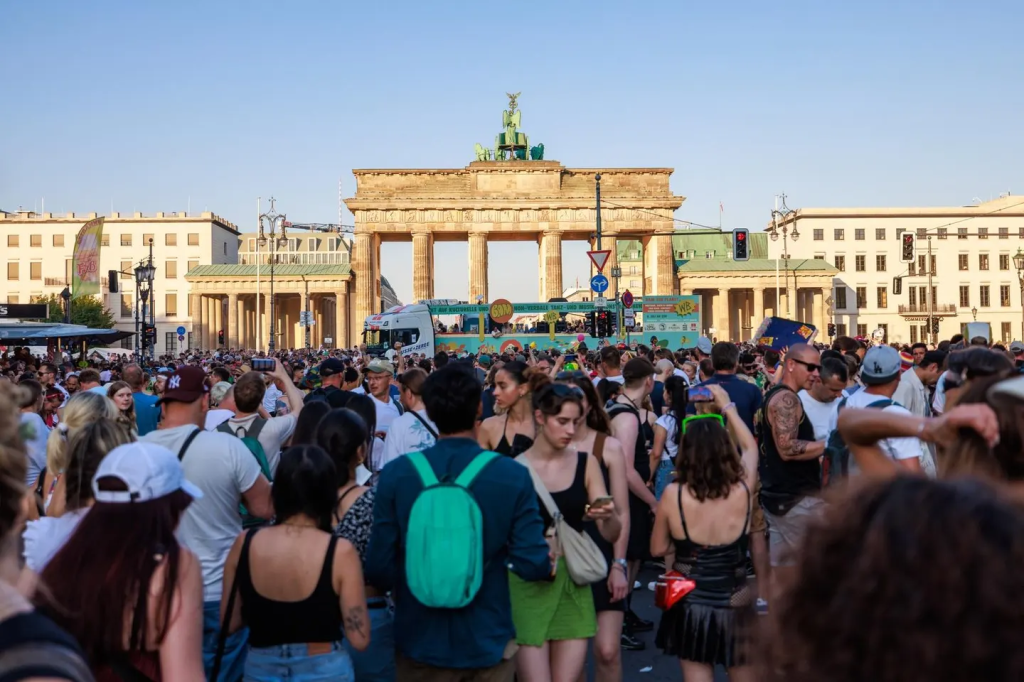
In Germany, bad behavior behind the wheel can cost you—literally. Shouting insults or making rude gestures while driving (even at other drivers or the police) is considered “road rage” and can result in fines up to €4,000 (about $4,520). The country has also cracked down on rowdy tourist behaviour in cities like Berlin, where noise ordinances and public drinking bans are increasingly enforced in neighbourhoods fed up with party tourism. And be careful about jaywalking: It’s illegal.
Czechia
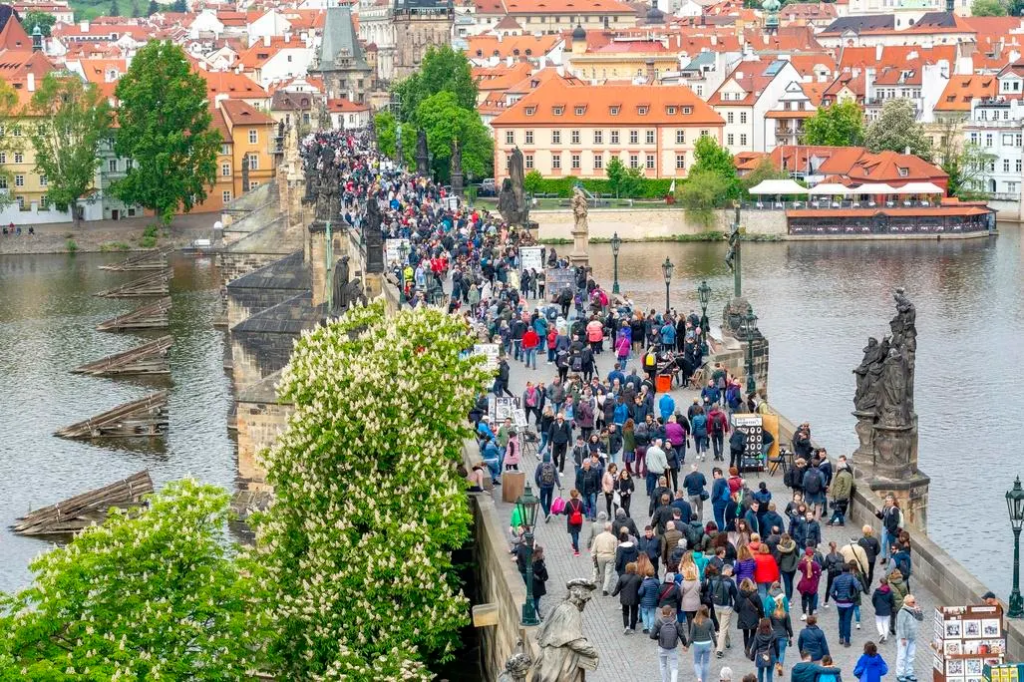
Prague is trying to shed its party capital image. The city has banned beer bikes, limited noise in historic areas and is cracking down on pub crawls, public drinking and rowdy bachelor and bachelorette parties. Bars even face fines if they serve already-intoxicated tourists.
Cyprus

Here’s a surprising one. Eating or drinking anything while driving in Cyprus—including a bottle of water—is against the law and could get you fined €85 (about $96). It’s considered a distraction, and local police enforce it.
Iceland

Iceland has had enough of tourists trampling its fragile landscapes. Off-road driving is strictly banned and can result in fines up to ISK 500,000 (about $3,600). Disrespect the rules, and you’ll pay—literally and environmentally.
Switzerland

Switzerland is picture-perfect, and there’s a reason why. The country has strict rules to preserve its pristine environment. Littering can result in on-the-spot fines, and being too loud late at night or leaving behind trash in public areas can earn you hefty penalties. In Zermatt, the town is car-free, and gasoline vehicles are prohibited to reduce pollution; electric taxis are the norm. And remember: Wherever you’re headed, make sure you’re up to speed on the latest Europe travel rules—or risk paying the price.
This article was originally published on forbes.com.


